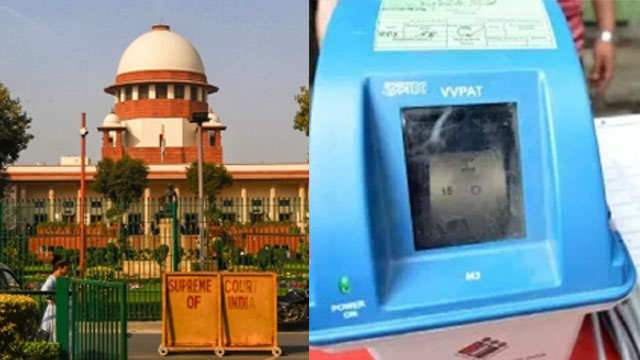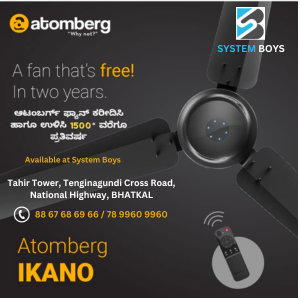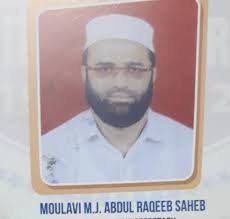SC dismisses pleas seeking mandatory EVM-VVPAT tally
06:39PM Fri 26 Apr, 2024

New Delhi, Apr 26 (IANS): The Supreme Court on Friday dismissed a batch of petitions seeking mandatory cross-verification of the votes cast in Electronic Voting Machines (EVMs) with Voter-Verifiable Paper Audit Trail (VVPAT) slips.
However, a bench headed by Justice Sanjiv Khanna asked the Election Commission of India to examine the suggestion if the VVPAT slips may, in addition to the party symbol, have unique barcodes on them, which in turn could be counted by an electronic machine.
In his verdict, Justice Khanna passed two directions in the matter. First, all Symbol Loading Units (SLUs) will be sealed on or after May 1 on completion of the symbol loading process and will be kept in the strong room at least for 45 days post declaration of results.
“The candidates or representatives shall sign the seal. The containers containing SLUs shall be kept in strong rooms, along with EVMs, at least for a period of 45 days post declaration of results,” the apex court said.
Second, the burnt memory semicontroller may be examined and verified by a team of engineers from EVM manufacturers post announcement of results on a written request made by candidates securing second and third highest votes.
“All candidates or their representatives shall have the option to remain present at the time of verification. Such a request should be made within a period of 7 days from the date of the declaration of results. After the verification process is conducted, the actual cost or expenses for the said verification will be notified by the ECI and the candidates making the said request will make payment of said expenses. Expenses will be refunded in case EVM is found to be tampered,” ordered the Supreme Court.
It said that the district election officer in consultation with the team of engineers will certify the authenticity and intactness of the burnt memory of the microcontroller.
Justice Dipankar Datta, authored a separate opinion, concurring with the directions issued by Justice Khanna.
On Wednesday, the 2-judge Bench called for the presence of an Election Commission of India (ECI) official to clarify certain technical aspects pertaining to the functioning of the EVMs.
Last week, the top court reserved its verdict in the matter, observing that official acts are normally presumed to be done validly under the Indian Evidence Act and everything done by the Election Commission cannot be suspected.
Solicitor General Tushar Mehta, the second highest law officer of the Centre, had slammed the petitioners for periodically filing PILs on the eve of elections saying that the democratic choice of a voter is being turned into a joke.
He added that the issue has already been settled by the apex court with the dismissal of the pleas seeking similar relief in the past.
In April 2019, the Supreme Court ordered the ECI to increase the VVPAT slips from one Electronic Voting Machine (EVM) per Assembly constituency to five. It had issued guidelines for mandatory verification of VVPAT slips, out of five randomly selected polling stations, after completing the final round of counting votes recorded in EVMs.
A VVPAT is considered an independent verification system for voting machines, allowing voters to verify whether they have correctly cast their votes.












